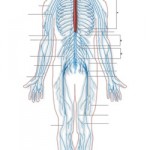Acceptance and Commitment Therapy reminds me of the tense time I spent learning how to drive a car. Venturing onto a two-lane highway, I fixed my mind on the big worry – how to get where I wanted to go without crashing into anything along the way. The most important thing was to stay in my lane, and I had trouble with that.
I divided my attention between the stripe down the middle of the road and the oncoming cars. After terrorizing my teacher and glimpsing panic in the eyes of other drivers, I realized this strategy was getting dangerous.
The problem then and now is that I tend to steer toward whatever I’m looking at, in this case the very thing I most needed to avoid. Later, I realized that if I looked far down the road, to get the big picture of where I was going, then I had no trouble staying in the lane. Even though I hardly noticed, my hands made the dozens of little adjustments needed to keep me on track.
This may sound like a trivial example, something you look back on with amusement many years later. But at the time, fear was driving both me and the car.
Looking Beyond Depression
ACT is a method to keep powerful feelings and thoughts of depression from driving your life. Instead of staring into the worst fears and trying to avoid them, you work at shifting focus toward living the way you want to live and the values that can guide you. Mindfulness and acceptance are two of the skills you learn to keep your attention on this larger field of vision.
Almost every day, I try to do this and learn again how hard it is to change. An all too common problem is the way I act with my wife when I get irritable. What I want more than anything is to have a responsive, loving relationship with her. But that central value often loses out to a burst of anger.
Anything can set me off when I’m in a depressive state. A small event or detail hits me like a knife stab. I try to get a little distance from the sudden upsurge of feeling because I know my wife hasn’t done anything to hurt me. If I let myself act out the anger, we get into a fight and both of us feel terrible. If I can keep the value of the relationship in mind, then I have a chance to stop for a moment, calm myself and take a look at what’s going on.
Focusing on what I really value isn’t always enough to stop following the anger, but it can give me a touchstone. The problem is finding the space between impulse and action. If I can settle down long enough to pause, I have other ways of handling whatever it was that brought on the intense reaction.
Changing what you do can also help change what you feel. If I stay away from a gathering of friends because of anxiety about being with people, I’ll feel a short term relief but also shame that I have acted out of fear. If I can go to see them despite the anxiety, I usually feel better. The action and the good feeling come to reinforce each other and help me change the habit of letting the painful feeling drive what I do.
Guiding Values
I once described the importance of tracking or mapping the ways you “do” depression through the actions you take to support it. ACT adds several dimensions to the tracking method. I’ll summarize a couple of them here and describe how I’m working with them in later posts.
First, you carefully think through what your values are so you can keep them explicitly in mind. The list of values can be extensive since you’re trying to cover all aspects of the way you want to live: relationships, work, community, your health in all its facets – physical, emotional, spiritual.
Once you’re clear about the values that matter to you, then you can track the daily choices and actions that either support or go against them. You capture both sides of the way you live – the one that feels fulfilling and the one that feels debilitating. You have a positive standard but not one you use to beat yourself with. The skills of mindfulness help you look at how you’re living in a non-judgmental way.
It’s easy to believe that your life is bounded by depression. That’s what I and most depressive lifers know best. We’ve spent too little time living as we’d like to live so it’s hard to shift thinking and the balance of action in the other direction. It’s not a problem limited to people with depression.
For every 1000 whose imaginations are captured by the vivid dramas of Dante’s Hell, maybe one or two follow the story to Paradise. Heaven may be a distant ideal and Hell much closer to where we live. But as the saying has it, if you’re going through Hell, keep going.
The best way I’ve learned to do that is to keep reminding myself of the life I really want and the deepest beliefs and values that can guide me there. Trying to make the choices that support those values rather than depression is an endless process of moving ahead, then back, over and over again. ACT refers to this as committing to action, and it’s an ongoing struggle for me. I’ll have a lot more to say about this as I keep working with ACT.



I don’t suffer from depression (my husband does), but I do deal with anxiety and ACT sounds like it would be very helpful for that as well. I wish you were still writing new blog posts, but enjoy reading your past posts as well.
I get that too. and I end up crying over a small thing. it’s hysterical. look forward to seeing how you progress with ACT. i may have to try it too, see if it helps me calm down a little
Noch Noch
Hi Noch Nock –
I’m curious too to see how I get on with ACT. Now that I’m sensitive to the awareness/ acceptance approach, I realize how many changes I’ve been through that have made use of it – and how many other forms of therapy incorporate the concept.
I hope you do find something to help you calm down. You know, your writing has a calming effect on me.
John
I’ll be eager to hear your updates, John! It’s so tough to control our thoughts (or, what I find is that even if I can get my thoughts in line, it’s hard to deal with the weighted feeling still left in your chest). I love the “keep going” through hell spirit though. It’s definitely the best option!
Hi, Felicity –
Thanks for your comment. It’s been a slow process to change my basic attitude toward depression, but I’ve had good results doing that prior to trying ACT. We’ll see how far I can get with this method.
John
Excellent post, and though I know you write about depression, it is so relevant to those with OCD as well. I love your analogy of driving and needing to focus on “the big picture” to get the desired results. This is often difficult for those with OCD, but so necessary for their recovery. Thank you for reminding us all how important it is to pay attention to how we want to live our lives, and work as best we can toward these goals.
Thanks, Janet –
It doesn’t surprise me to hear that the ideas are also relevant to people with OCD. The stories and methods for recovery from OCD have been some of the most inspiring models for me to learn from. I know the DSM draws bright lines to separate mood disorders from fear disorders from personality disorders, etc but there is a lot to be shared when it comes to getting well.
John
They get to my page, I would like to share them on my feed.
Thanks for the like, Emily. Is there a problem with sharing – do these posts get to your page?
I wish I could share this.